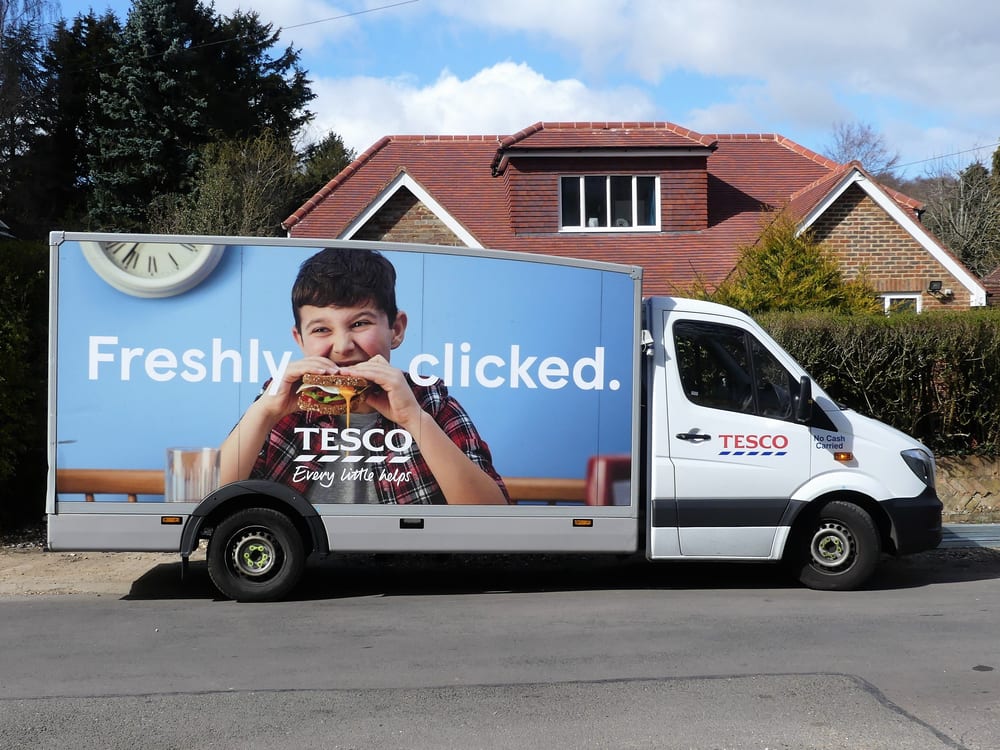Tesco Delivery Slots Not Working
- Tesco Delivery Slots Not Working Now
- Asda Delivery Online
- Tesco Delivery Slots Not Working Machines
- Tesco Pick A Slot
Customers who want to have their Tesco shopping delivered during their free time over the weekend will now need to pay even more as the supermarket giant raises delivery slot prices.
The most noteworthy rise is from £6 to £7 for some morning slots which could add £364 to a shopper's annual home delivery cost by an almost 20% increase from previous delivery payments.
Tesco Delivery Slots Not Working Now
I made an order online with Tesco, and had to pay £5 for my delivery slot and when it arrived all that came was ONE ITEM. They did not inform me of anything being out of stock, and continued to delivery my one item. I would of rather not have received it if I knew I was not getting anything else. Cannot book a delivery slot – Tesco customer services have no idea why not. Book a slot button whited out on website. Re-entering address and clearing browsing history does not work.as suggested.
Tesco said its new prices came into effect for slots booked from March 7; however regular Tesco shoppers say they haven't seen any advance warning of the price increase.
The delivery slots that now come with a £7 price tag are Fridays and Saturdays from 8am to 9am, and Sundays from 8am through to 10am.

Tesco said it had raised prices to “ensure its online shopping service remains sustainable for the future” and claimed it was important to “encourage shopping across the week; as midweek is not as popular as the weekend”.
Tesco was also quick to point out that it has increased the number of £1 slots available each week, from 10% of all slots to 12%. These tend to be offered on midweek or late night slots.
But after a quick tot up, we found Tesco offers just fourteen slots for £1 over the course of a week; significantly less than competitors like Asda or Sainsbury’s.
Tesco’s increased delivery charge comes less than a year after it announced a £4 surcharge on online orders under £40. Previously this only applied on orders under £25.

Supermarket delivery charges
So how do the other supermarkets stack up with their delivery rates?
Asda
Home delivery is available in two hour slots from 7am through to 11pm from Monday to Saturday and then between 8am and 10pm on Sundays at Asda.
Like Tesco it also offers £1 delivery slots, there are more to choose from with a total of seventeen each week. However, as with Tesco these cheap slots will not suit everyone, as they’re typically midweek and mid-afternoon.
Weekend delivery costs up to £6 a time, although regular shoppers can cut costs using a Delivery Pass. The ‘Anytime’ version costs £60 for a year , £36 for six months or £8 for a one-month option.
Alternatively there is a midweek Delivery Pass which costs just £24 a year. However, it only covers deliveries between Tuesday and Thursday.
All orders are subject to a £40 minimum spend, otherwise you’ll pay the standard delivery charge that applies to the slot you book.
Morrisons
Morrisons offers one-hour delivery slots from £1 up to a maximum of £5, depending on the day and time chosen.
And it offers nearly eighteen hours a day of deliveries from 6am through to 11.30pm.
Delivery pass options cost from £5 to £7 a month for the ‘Anytime’ option, or from £2.50 to £5 for midweek, which applies from Tuesday to Thursday.
Like most of the other supermarkets, there’s a £40 minimum on all orders.
Ocado
Ocado offers one hour slots from 6.30am to 11pm every day of the week, but you must place an order of at least £40.
Delivery charges vary according to both order value and time of day, with orders under £75 charged anything from £2.99 up to a maximum of £6.99.
However for orders of £75 or more you can get free delivery.
Asda Delivery Online
Ocado shoppers can cut costs with its ‘Smart Pass’. This costs £10.99 a month for anytime delivery (subject to £40 minimum order) or £6.99 a month for midweek delivery which applies to Tuesday through to Thursday.
Sainsbury’s
Sainsbury's offers free delivery on orders over £100 after 2pm between Monday and Thursday.
Otherwise standard delivery charges apply, which range from £1 to £6 with one hour timeslots available from 8am to 11pm.
All deliveries are subject to a minimum £25 order, with orders under £40 incurring a £6.95 delivery charge.
Sainsbury’s ‘Anytime’ delivery pass means one free delivery any day of the week. It costs £60 for a year, £35 for six months or £20 for three months.
Cheaper still is the midweek delivery pass, which gets you a free delivery on Tuesdays, Wednesdays and Thursdays. It costs £30 for a year, £18 for six months or £10 for three months. All delivery pass orders are subject to a £40 minimum spend.
Waitrose
Free home delivery on orders over £60 sounds like a great deal, especially when you consider the fact that Waitrose promises to price match Tesco on branded groceries.
However on the down side, there’s no delivery option available for smaller orders under £60, even if you’re prepared to pay for it.
Hourly slots are available from 9am through to 10pm seven days a week, except days like Easter Sunday.
9 December 2020Online retailing services are expected to face record demand this Christmas due to lockdown restrictions in some UK regions especially.
This is putting huge pressure on e-commerce retailers, fulfilment centres and distribution hubs all along the supply chain and, of course, also on the road delivery transportation sector. The whole online retail supply chain has to somehow increase operational effectiveness if it is to fulfil customer orders on time.
Event online giant Amazon has warned that delivery services may get stretched. Retailers are therefore trying to encourage customers not to wait until the last minute, however, shopping early for fresh food orders will not work due to the perishability of the goods. This means deliveries would have to be orchestrated a few days before Christmas.
Many of the big retailers have already taken steps throughout the year to meet the rising demand for online orders. They have increased storage space where possible, added more pickers and packers in fulfilment centres and distribution hubs, hired more delivery drivers, or entered into contracts with third party couriers such as Deliveroo and Uber Eats.
But there is a finite limit to warehouse storage capacity and working hours for fulfilment centres and delivery drivers can only be extended so far. Bottlenecks are still likely to build up, particularly at distribution hubs.
The likes of Asda, Morrisons, Sainsbury’s and Tesco have tried to smooth out some of these potential bottlenecks by introducing more home delivery slots and asking customers to book them earlier.
The big supermarkets also introduced click & collect across their stores earlier this year, which takes some of the pressure off home delivery services. However, it does mean hiring more people in store to do the picking and packing and the number of click & collect slots is also finite.

Given these capacity limitations, retailers need to do more with what they have. That means better organisational planning, better communication within stores and fulfilment centres, and better scheduling and optimised delivery routes for drivers to help boost efficiency and productivity all along the supply chain.
None of this can happen without good communications and Hytera radios provide an extremely efficient and reliable way of keeping in touch with groups of people at the same time. Hytera Push-to-Talk over Cellular (PoC) devices are ideal for the retail sector as they combine instant two-way radio push-to-talk (PTT) technology with wide area 2G, 3G, 4G and WLAN public networks. No infrastructure is required and there is no hassle with monthly contracts as with mobile phones.
PoC radios enable managers and supervisors to communicate with groups of employees simultaneously. Personnel working in stores, warehouses and distribution centres can use the radios not only to communicate, but also to work effectively while still maintaining social distancing.
The PDC550 is the perfect device for retail stores, fulfilment centres and warehouses, as it is both a rugged 4GT PTT radio and a smartphone. Retailers and distribution firms can install workflow management, pick and pack, and fleet management apps onto the device to boost efficiency and productivity.
The PNC380 rugged device is highly suitable for delivery drivers, as it provides a PTT 4G service in the depot and access to wide area cellular networks out on the road. The integrated GPS enables supervisors to locate and track drivers to provide real-time awareness of vehicle location and delivery status. A mobile Sim card in the device also allows drivers to keep the customer updated on the progress of their order.
Back to News List9 December 2020
Select a device typeHandheld
A handset to grab and go - in the pocket, on your belt, always with you.Mobile
 A vehicle-mounted or desktop device, always available and in position.
A vehicle-mounted or desktop device, always available and in position.